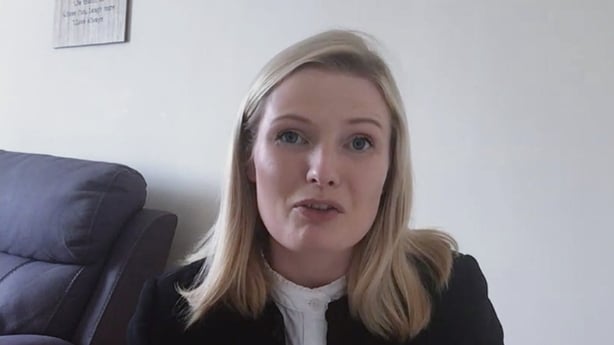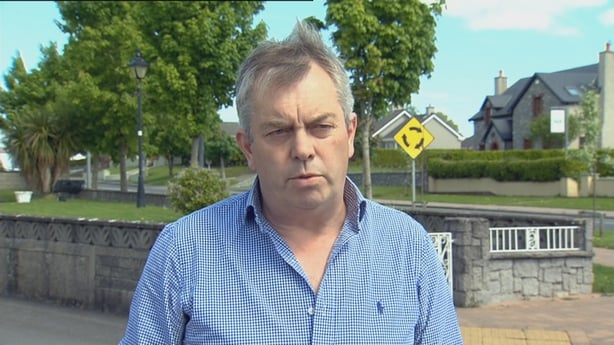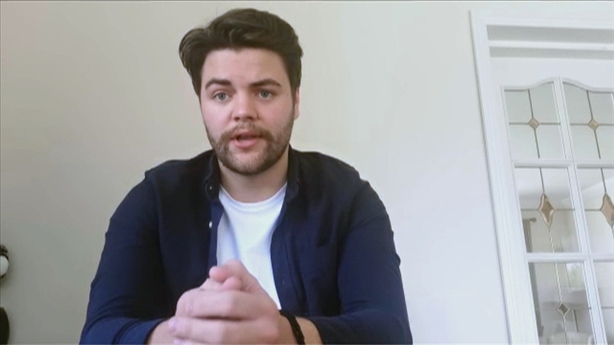It is approaching 100 days since the general election and the time for talking has finally arrived.
The negotiating teams of Fianna Fáil, Fine Gael and the Green Party will begin substantive discussions today, having agreed a schedule for negotiations last week.
While there are big policy differences between the parties as they try to reach consensus on a programme for government, there is one thing that all the leaders have in common: a sceptical party membership that will take a lot of convincing that the compromises needed will be worth it.
Each party is obliged under its rules to get the approval of members for any programme for government.That makes what happens outside of Ag House - where the talks are taking place - as important as what happens inside it.
The Green Party struggled to even get to this point.
When it held a vote of its 12 TDs and voted to enter talks, they did so by just eight TDs in favour. Three voted against it and two of these are now part of the negotiating team - including deputy leader Catherine Martin.
This shows just how hard it will be to get any deal approved by the party membership.
Under Green Party rules, the bar is high. A two thirds majority is needed to approve any government deal. Those who have been members of the party for the past six months - around 2,500 - will have a vote.
Lorna Bogue is a 28-year-old councillor in Cork who, when she was chair of Greens Youth in 2015, said that she got involved in politics "because I'm tired of middle-aged men p****g away my future." It’s clear that her mistrust of Fine Gael and Fianna Fáil has not softened in the five years since then.

"This idea that Fianna Fáil and Fine Gael are going to deliver things like ending homelessness, like ending direct provision, like actually paying farmers for their work? That is the problem here. They won’t give us a deal that will do all the things that we are asking for," says Bogue, who does not believe any programme will be ratified by the membership.
She says it is up to the bigger parties to persuade her colleagues.
"It is on them actually to provide a deal that the pragmatic grassroots members of the Green Party who are embedded in local communities, who are fighting to protect the environment and the people living in it can agree to. They have to convince us of that and at the moment what we are seeing is not convincing," she told RTÉ’s The Week in Politics.
But if the sort of concessions demanded by the Greens are accepted by the negotiating teams of the bigger parties, then it will make the deal all the harder to swallow for their own members.
"There is a fear, especially in the rural areas, around the Green policies and how quickly they want those implemented," says Fine Gael Councillor John Sheahan who represents rural parts of Limerick.

He is among a number of councillors who held a Zoom meeting with junior minister Patrick O’Donovan last week. Some of them called for their party to try to form a government of national unity until such a time as a fresh election can take place. "What’s the rush?" he asks.
Fine Gael has a complex set of rules to ratify a programme for government. It consists of an electoral college with weighted voting. TDs and Senators have a 50% say, its councillors account for 15%, its executive council 10%, and constituency organisations account for 25%.
The party must also under rules hold a delegate conference. But that is not possible because of coronavirus measures.
"There is an anxiety in the party. Are we being listened to now that we can’t hold a normal Ard Fheis to sanction entering government?" asks Mr Sheahan - echoing similar concerns in other parties that the virus will limit their say.
Fianna Fáil rules state that its members - around 20,000 - will have the full say on entering government - decided by a simple majority of 50% plus one.
Micheál Martin last week gave assurances to party members that they would have the opportunity to vote - after some councillors publicly raised concerns that they would be left out of the decision-making process.
The "one member one vote" system was introduced by Martin in 2012 as part of his process to rebuild the party. It is simpler, but also makes it more challenging for him to get any deal approved.
There is intense internal debate taking place in the party about its next steps and what they will mean for the party in the longer term.
In one WhatsApp group for party members nationally, one member sparked a discussion by suggesting: "Govt should be left in place until crisis is over. They are doing well in this crisis in fairness. It would be folly to change the key ministers now. I wanted FG out but not yet."
Michael O’Shea – a Fianna Fáil councillor in Kerry (where support for the putative deal is tepid at best, according to a recent poll by Radio Kerry) said a government involving the Green Party would "decimate rural Ireland" and he therefore could not support it. Like some Fine Gael councillors, he supports the idea of a national government until "all of this calms down."
There is also wariness in Fianna Fáil of giving Sinn Féin a clear run of the opposition benches, which will enable them to build on their gains made in February’s elections. There is still a view that the party should be open to a deal with Sinn Féin, even though Mr Martin has ruled it out.
"I would have liked personally to have sat down and spoken to Sinn Féin and gone through their policies line by line," said Adam Wyse, a Fianna Fáil councillor in Waterford.

But he added: "We are now speaking to Fine Gael and the Greens as two parties that seem open to actually forming a government which, to me, is the most important thing at this time."
It is that pragmatic attitude that the leaderships of both Fianna Fáil and Fine Gael expect to ultimately take hold among the grassroots.
Members might have a chance to vent their concerns, the thinking goes, but they will ultimately come on board with a deal.
But they have doubts about the ability of the Green Party negotiating team to bring its membership with them, and that leaves the likelihood of a government being formed hanging in the balance.
While the Green Party has flexed its muscles in the process that brought them to this point, Fianna Fáil and Fine Gael are keen to show that the core values of their party memberships will also have a place at the negotiating table.
There are still so many moving parts before this coalition puzzle can finally come together. But the process is already beginning to look like putting a jigsaw together with a sledgehammer.
If it does come together in the end, the irony could very well be that the government to end civil war politics will have opened up a whole new set of internal party divisions.






